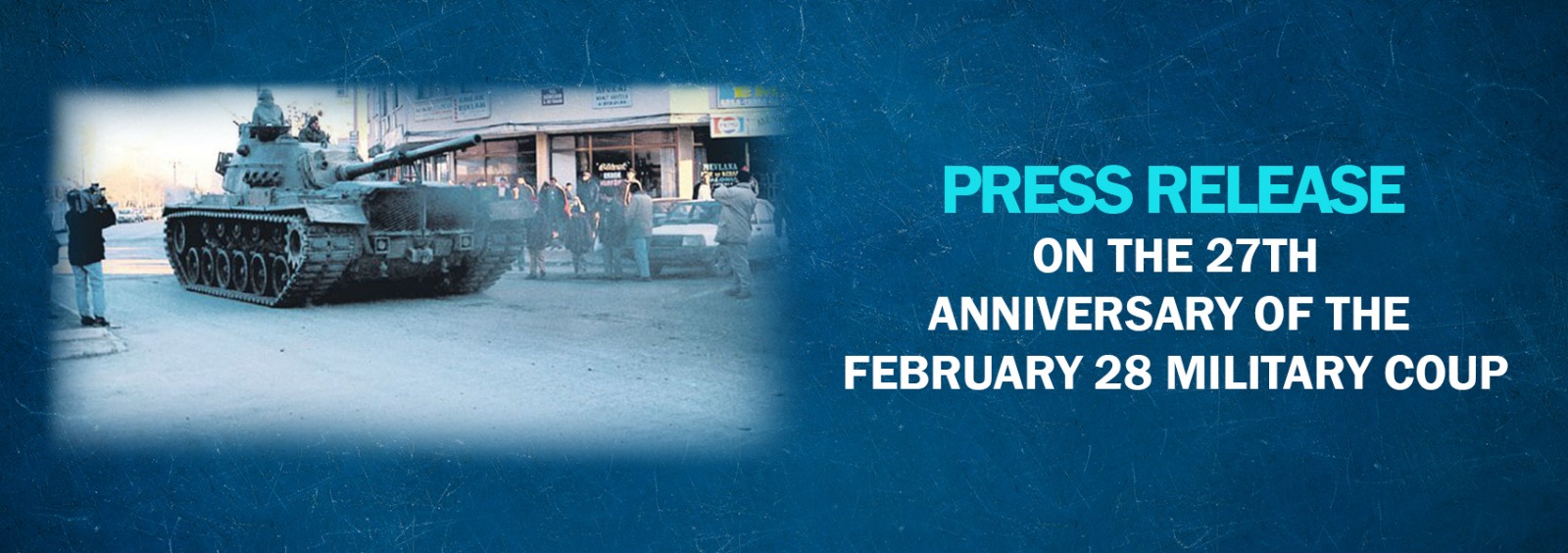
Following the switch to multi-party system in Turkish political history, a military coup happened almost every decade. One of those coups is February 28 (1997) Coup which is described as "Post-Modern Coup" due to it violating the fundamental rights of hundreds of thousands of people and differing from other classical coups. February 28 Coup differs from other coups in that it was carried out directly against a segment of the society and their way of life and received support from the media, capital, bureaucracy, judiciary, and universities, as well as militarist forces.
During the February 28 period, one of the most fundamental freedoms, the freedom of religion and belief, was intensively and systematically violated. During this period, one manner of life was preferred over another by the state itself, and the freedom of belief and worship, enshrined in fundamental human rights documents, was perceived as a threat and used to conceal human rights violations. However, the freedom of religion and conscience is a fundamental right enshrined in both our national legislation and in international human rights law acquis. According to Article 24 of the Constitution titled "Freedom of religion and conscience," "Everyone has the freedom of conscience, religious belief and conviction. Article 18 of the United Nations (UN) Universal Declaration of Human Rights and Article 18 of the International Covenant on Civil and Political Rights guarantee freedom of religion and conscience. According to Article 9 of European Convention on Human Rights, "Everyone has the right to freedom of thought, conscience and religion; this right includes freedom to change his religion or belief and freedom, either alone or in community with others and in public or private, to manifest his religion or belief, in worship, teaching, practice and observance." Within this context, people cannot be forced to reveal their religious or conscientious opinions, to worship, practice religion or to participate in rituals in any way, nor can they be condemned or blamed for the religious beliefs and convictions they express through their worship and religious practices [AYM (Constitutional Court), Tuğba Arslan Decision, Application No: 2014/256, 25/6/2014]. During the February 28 period, many people were oppressed and subjected to unfair practices due to their religious beliefs and worship. During this period, thousands of hijabi students were suspended from their schools, and students' right to access education were prevented by eliminating equal opportunity in education with the coefficient practice. During this period, the rights to freedom of expression and association were violated by closing down many non-governmental organizations or limiting their activities. By removing elected power and closing political parties practices, exercise of rights to elect and to be elected and to engage in political activity were prevented. Many people working in the public sector were subjected to disciplinary investigations and dismissals due to their religious beliefs and practices.
It has been emphasized that individuals being able to belong to different religions and have different conscientious convictions is enshrined in both international agreements and the Constitution as a fundamental right, and that these differences cannot be a justification for discriminatory practices. The principle of non-discrimination has a central place in international human rights law acquis. Within the framework of the aforementioned regulations, discrimination on the ground of religion and belief is prohibited. In a similar fashion, according to Article 10 of the Constitution, "Everyone is equal before the law without distinction as to language, race, colour, sex, political opinion, philosophical belief, religion and sect, or any such grounds."Women are one of the groups most affected by the February 28 period. During this period, women were deprived of many fundamental rights and freedoms as a result of the discriminatory practices they were subjected to due to their religious beliefs and convictions as well as their gender.
On the 27th anniversary of the February 28 Post-Modern Coup we, as the Human Rights and Equality Institution of Türkiye, condemn the human rights violations that had occurred and hope that similar grievances will never occur again.
Respectfully announced to the public.